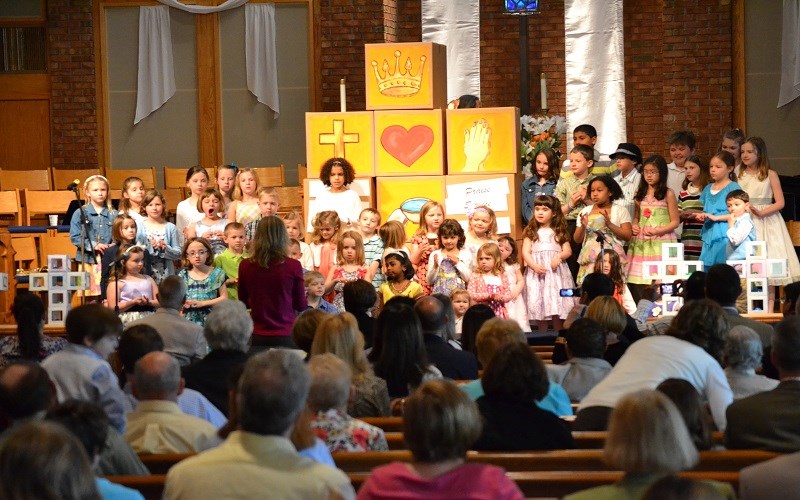

Even before I was a parent, I knew the importance of teaching children biblical truths. But now that the Lord has entrusted my husband and me with two children to raise, what I knew as a concept is now reality … and a huge responsibility.
Therefore, when it comes to Easter, I attempt to move far beyond bunnies and eggs and help them see the love of the Lamb in the reality of the cross. But how?
Several interviews I conducted years ago provide valuable – and still timely – answers to this question. I asked three different Christian scholars how to best teach children about Easter. Their responses were originally published as a feature story in the March 2009 AFA Journal and are now appearing here as a three-part blog series. The series includes interviews with Dr. R.C. Sproul Jr., Burk Parsons, and Rev. James L. Harvey III, who offer, in their own words, sound ways to help you make an eternal investment in your children this Easter and throughout their lives.
The first installment featured advice from Dr. R.C. Sproul, Jr. The series continues now with wisdom from Burk Parsons, husband and father, co-pastor of Saint Andrew’s Chapel in Florida, and editor of Tabletalk magazine.
When it comes to teaching children about Easter, Parsons believes it is important to provide simple and clear explanations, teach basic biblical concepts and use biblical language. He expounds on this below:
When answering children, we should always strive to be simple and clear in our explanations. We should do our best to provide children with answers they themselves can explain to others.
For ages three and four, we might simply explain: “Easter is a very special day when we celebrate the day Jesus rose from the dead.” We can certainly provide more explanation; if we do, it is helpful to use picture words that young children are more prone to capture in their minds.
Ages five to seven are generally ready to learn big, new words and are apt to remember more precise explanations. Therefore, we can provide a more complete picture of Easter while building on the language we have previously employed, repeating certain key words and continually using the name Jesus rather than the third-person singular pronoun “He.” This is helpful for children as they strive to remember the basic storyline of historical events, especially when we speak of the Trinity.
Children ages eight and up, depending on their spiritual maturities and intellectual capabilities, are ready to learn as much as we are ready and willing to spend quality time teaching them.
Children are able to understand the simple history and general message of Easter without understanding fully the biblical concepts of sin, redemption, and grace. However, it is fundamental that we begin teaching the basic biblical concepts of salvation as soon as they understand their own sins.
We need to explain to our children the following things, trusting the Lord to do His gracious work in their hearts to bring them to salvation: Who is God, and what is God’s standard? Who are we as sinners? Why are we at opposition with God, and what does it mean to be at opposition with God? Why did Jesus come? Why did Jesus die on the cross? Why did Jesus rise from the dead? How do we know God and live with God forever?
As we provide answers to our children, it is crucial that we help them know and use language that is biblical and confessional. We would do well not to use some sort of dumbed-down, childish “Christianese” language that often distorts the truths of God’s Word.
[Also], we need to teach with a clear purpose in mind, showing our love for them and visible care about the biblical subject we are addressing; with authority, gentleness and proper motivation, constantly and with consistency – when we rise up in the morning and when we lie down at night.

Burk Parsons
RESOURCES FOR TEACHING CHILDREN:
Here you can find more “God-centered resources for training the next generation.”
Here are a number of books and activities that a family friend uses to use to teach her children about Easter.

